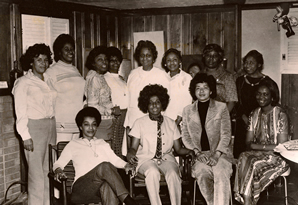Warning: in_array() [function.in-array]: Wrong datatype for second argument in /home/african/public_html/wp-content/plugins/yet-another-related-posts-plugin/classes/YARPP_Core.php on line 1009
Warning: in_array() [function.in-array]: Wrong datatype for second argument in /home/african/public_html/wp-content/plugins/yet-another-related-posts-plugin/classes/YARPP_Core.php on line 1009
Warning: in_array() [function.in-array]: Wrong datatype for second argument in /home/african/public_html/wp-content/plugins/yet-another-related-posts-plugin/classes/YARPP_Core.php on line 1009
Warning: in_array() [function.in-array]: Wrong datatype for second argument in /home/african/public_html/wp-content/plugins/yet-another-related-posts-plugin/classes/YARPP_Core.php on line 1009
Warning: in_array() [function.in-array]: Wrong datatype for second argument in /home/african/public_html/wp-content/plugins/yet-another-related-posts-plugin/classes/YARPP_Core.php on line 1009
Warning: in_array() [function.in-array]: Wrong datatype for second argument in /home/african/public_html/wp-content/plugins/yet-another-related-posts-plugin/classes/YARPP_Core.php on line 1009
NBNA is a non-profit organization first organized in 1971, but officially incorporated on September 2, 1972 in Ohio.

After more than 40 years, the association continues to grow and expand the opportunities to “provide a forum for collective action by African American nurses to investigate, define and determine what the health care needs of African Americans are and to implement change to make available to African Americans and other minorities health care commensurate with that of the larger society.”
Representing more than 150,000 African American registered nurses, licensed vocational/practical nurses, nursing students and retired nurses from the USA, Eastern Caribbean and Africa, with 83 chartered chapters, in 34 states, NBNA offers scholarships, training, mentoring, and leadership to nurses around the world.
Dr. Lauranne Sams, former Dean and Professor of Nursing in the School of Nursing at Tuskegee University was a founding member along with Phyllis Jenkins, Betty Smith Williams, Ethelrine Shaw, Gloria Rookard, Betty Jo Davidson, Mary Harper, Doris Wilson, Mattiedna K. Johnson, Phyllis Davis, Mattie Watkins, and Florrie Jefferson
In 2003, the National Black Nurses Association became one of the five founding organizations of the National Coalition of Ethnic Minority Nurse Associations (NCEMNA), along with Asian American/Pacific Islander Nurses Association, Inc., National Alaska Native American Indian Nurses Association, Inc.; National Association of Hispanic Nurses, Inc.; and, the Philippine Nurses Association of America, Inc. This collaboration gives voice to 350,000 minority nurses. Dr. Betty Smith Williams is the NCEMNA president and a past NBNA president.
Its goals include support for the development of a cadre of ethnic nurses reflecting the nation’s diversity; advocacy for culturally competent, accessible and affordable health care; promotion of the professional and educational advancement of ethnic nurses; education of consumers, health care professionals and policy makers on health issues of ethnic minority populations; development of ethnic minority nurse leaders in areas of health policy, practice, education and research; endorsement of best practice models of nursing practice, education, and research for minority populations.
NBNA also publishes a quarterly newsletter written by members and experts on nursing and health subjects such as nursing policies, research studies, and newsworthy events changing the world of nursing.
NBNA hosts National Black Nurse Day on Capitol Hill for more than 20 years now. The event is designed to bring awareness to the nursing shortage, provide opportunities for CEU training for nurses, and provide the public with a voice to develop the nursing profession.
NBNA offers members a wide variety of assistance and support both as a current nurse and a nursing student. Although initially organized for African American nurses, this organization has made an impact on all nursing. The association is involved with the National Obesity Initiative, research programs for women’s health, and recognizes nurses for Lifetime Achievements and major contributions to their professions at their annual conference.
Through the many partnerships with other nursing organizations and the prominent community respect, the organization continues to grow and improve the nursing profession.

No comments yet.